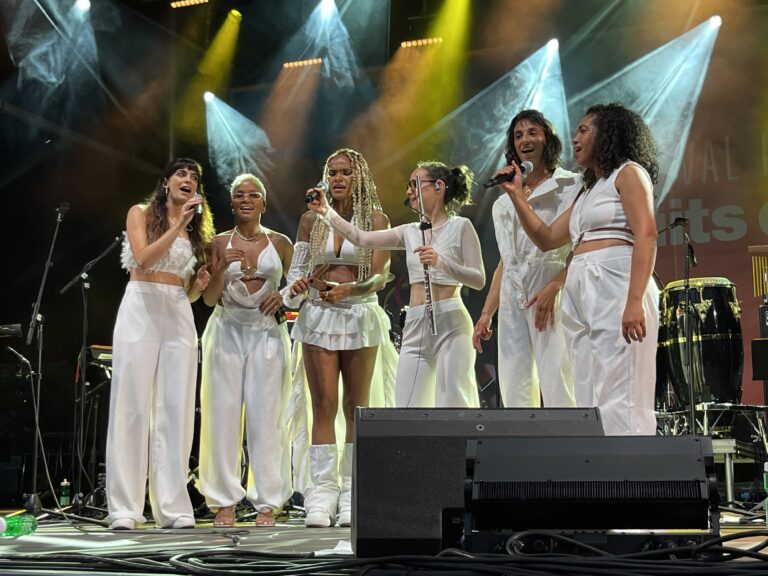What can I say? On this cool July evening, the stages of the Festival Nuits d’Afrique were on fire. First, for the concert by Manamba Kanté, daughter of griot Mory Kanté, one of the precursors of the modernization of African music. The multicultural, but very African-Montreal crowd was in a trance.
Would this state of mind be maintained for the next concert, with Las Karamba, a sextet of Latin American immigrants to Barcelona, who have made salsa and Afro-Cuban rhythms their own? Yes, they would!
Las Karamba are two Venezuelan sisters, two Cubans, an Argentinean and a Catalan, who met in the Catalan metropolis. Two albums later, the women are producing original, feminist, committed and festive salsa. It’s hard to resist the magnetic charisma of singer Ahyvin Bruno and her colleagues.
They make a salsa with no brass, apart from a transverse flute, where the voices take up a lot of space. At times, we find ourselves in a rap or slam salsa, with spoken texts. The two percussionists keep the rhythm tight, but complex. We don’t hear any great improvisations, but the presence of the six women and their enthusiasm make up for it.
The ultimate barometer of this kind of concert: there was a lot of dancing and a lot of smiling. Those who understand Spanish were also able to meditate on what remains of patriarchy today, while waddling along. The world is paradoxical, my friends.
In the middle of their performance, the girls sang a resistance song a capella. Salsa sometimes embodies a masculine, macho world. Las Karamba provided us with a feminist antidote. Following in the footsteps of Cuban-American Celia Cruz, who inspired them.
There was a very good crowd for this last evening of Nuits d’Afrique.
























